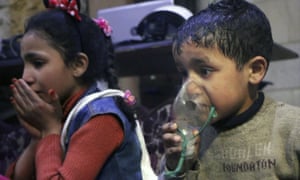It was a year the world regressed – at least in terms of relations between states. Binding treaties were discarded, multilateral organisations were denigrated and usurped, international law was ignored, and the authority of the United Nations came under unprecedented challenge. The ideal, encouraged since 1945, of a global community making common cause to right the world’s wrongs faded. In 2018, the ties that bind frayed.
Global rules-based order
Donald Trump appointed himself public enemy number one of the global order. By his words and actions, he undermined the UN, the EU, the World Trade Organisation, the International Monetary Fund and the North American Free Trade Agreement.
Trump questioned the usefulness of Nato and disrupted its meetings. He withdrew the US from the multilateral 2015 nuclear pact with Iran and, assuming global jurisdiction, vowed to punish anybody who disagreed. When the international court of justice in the Hague outlawed his Iran sanctions, he ignored it. Trump reneged on the Intermediate Nuclear Forces treaty, a key 1987 arms control pact with Russia, quit the UN’s human rights council, cut funding for UN organisations, and trampled on multiple UN resolutions by recognising Jerusalem as Israel’s capital.
Other governments behaved in similarly destructive fashion. Vladimir Putin ignored international demands to reverse Russia’s illegal annexation of Crimea. Systemic human rights abuses, including disappearances and persecution of the Tatar Muslim minority, went unpunished.
Putin colluded with Bashar al-Assad’s use of chemical weapons in the war in Syria, in open defiance of the global 1997 UN convention banning their use. The US, UK and France launched one-off missile strikes after a suspected sarin nerve gas attack in Douma, a suburb of Damascus – strikes Moscow condemned as illegal. Russia, Iran and Turkey promoted an alternative Syrian peace process, undermining UN-led talks.

Russia mounted a chemical weapons attack, using the novichok nerve agent, in southern England, against a former spy, Sergei Skripal. Its agents tried to hack the international watchdog, the Organisation for the Prohibition of Chemical weapons, and Britain’s Foreign Office. Britain demanded the extradition of those responsible for the Salisbury attack. Putin refused. In December, the 70th anniversary of the landmark Universal Declaration of Human Rights passed largely unnoticed and un-celebrated.
UN security council
Russia’s vetoes, backed by fellow permanent member China, again protected Assad against UN war crimes inquiries and immunised Putin’s own actions in Ukraine. China, backed by Russia, blocked action on illegal abuses in Xinjiang and Myanmar. Their obstructionism reduced the UN security council to a state of impotence.
Others were guilty, too. The US shielded Israel from UN censure after its forces killed dozens of Palestinians on the Gaza border in May. It later blocked a ceasefire resolution on Yemen. Ignoring the UN convention prohibiting racial discrimination, Israel passed a nationality lawinstitutionalising discrimination against Arabs and non-Jewish minorities.
State-sponsored murder
Despite the uproar over the Saudi regime’s murder of Jamal Khashoggi, unlawful and extra-judicial killing by states – notably the US-led campaign to eliminate Islamic State (Isis) terrorists and other presumed extremists in Syria, Iraq, Yemen, Afghanistan, Somalia and the Sahel – was further normalised in 2018.
Independent observers also suffered. Journalists were killed or jailed in growing numbers, reflecting governments’ disregard for freedom of information rights. Academic researchers, such as the Briton Matthew Hedges, who was jailed in the United Arab Emirates, faced intimidation or worse, while dual nationals, such as Nazanin Zaghari-Ratcliffe, jailed in Iran, were used as pawns in international power games.

Trade wars
Climate change and global warming
Trump followed his 2017 renunciation of the Paris climate change accord with fresh efforts to disrupt action on reducing carbon emissions in forums such as the G7 and G20. Emissions reached an all-time high in 2018.
Naturalist David Attenborough told a climate conference in Poland that the world is “facing a man-made disaster of global scale … The collapse of our civilisations and the extinction of much of the natural world is on the horizon”. In October, climate scientists warned global warming could become irreversible in 12 years’ time.
Japan endured its highest-ever recorded summer temperatures while snow fell in the Sahara in February. Lethal wildfires devastated parts of California, Sweden and Greece. Huge floods affected China, India and France. Britain shivered under a wind nicknamed “the Beast from the East”.
Nationalists and populists
Rightwing populist and nationalist parties, exploiting fears about immigration and identity, raised their profile across Europe and the Balkans. In Italy, a hard-right coalition boosted its popularity by defying the EU on immigration and budget deficits.
In Germany, the ruling coalition was humiliated in regional polls in Bavaria and Hesse dominated by anti-immigrant sentiment. Angela Merkel, author of the “open door” policy, announced she would not stand again for chancellor and relinquished her leadership of the Christian Democrats (CDU). Germany got a glimpse of who its next chancellor could be when Annegret Kramp-Karrenbauer was elected Merkel’s successor as CDU leader. Elsewhere, far-right parties made gains in Spain and Sweden.
In France, Emmanuel Macron, self-styled champion of progressive Europe, struggled to hold the line against Marine Le Pen’s National Rally and “gilets jaunes” protesters angry about taxes and life in general. Britain’s unresolved Brexit drama weakened the ties binding England, Scotland and Wales, further inflaming separatist, nationalist, anti-immigrant and xenophobic sentiments.
As Europeans looked inwards, more than 2,000 people drowned in the Mediterranean in 2018 while trying to migrate to Europe, many exploited by smuggling gangs in lawless Libya. The withdrawal of NGO rescue ships, under pressure from EU governments, suggested the toll would rise.







